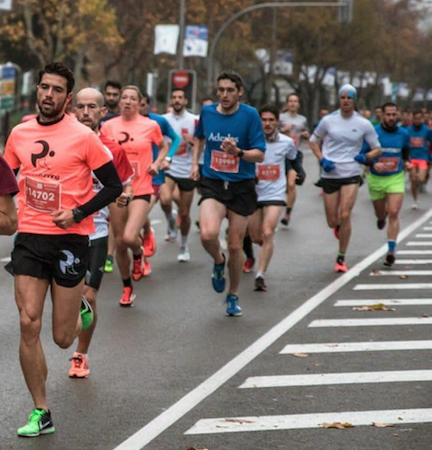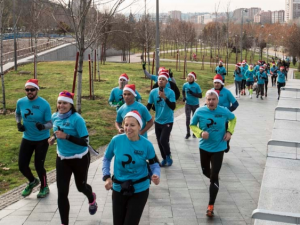Sometimes when temperatures begin to drop and drop, it seems that a feeling of dejection and a certain lack of energy floods us. Sensation that sometimes comes as a result of the body taking time to adapt to the lack of light and weather changes.
And it is that even, in winter, it could be considered that sleep is not totally restorative since despite sleeping the corresponding eight hours, many people feel the need to have to rest more .
The explanation for this lack of energy is attributed to the absence of light and the fact that serotonin (a hormone that acts by regulating, among other things, mood, sleep, appetite, heart rate, body temperature or sensitivity ) is influenced by daylight hours.
Therefore, in winter the days are inevitably shorter and we enjoy fewer hours of sunshine and in general the weather is not exactly optimal. These factors move many to a state of greater sadness during these months . To combat this state, a good solution is to have a healthy lifestyle by doing some type of exercise and eating a healthy and balanced diet.
And to be more energetic in our training sessions during these dates, you just have to follow these tips.
Tips to have more vitality
Do not stop doing any sport or exercise
The recommended thing so that your energy does not drop is to force yourself to do some exercise. Do something that motivates you and if it is outdoors better. It is a fact that outdoor training improves our immune system and, even more, some research carried out, such as that of the Mayo Foundation for Medical Education and Research, suggests that training in a cold environment can reduce the possibility of getting the flu by up to 30%.
With only 30 minutes a day of this exercise you will feel more energetic and you will fill with vitality.

Sleep the necessary hours
The ideal is to sleep for 7 to 9 hours to wake up with all the attitude and energy necessary to face the day. Much research shows that lack of sleep increases the risk of obesity, heart disease and other conditions such as diabetes. While you sleep, your body releases hormones that help repair cells and control your body’s use of energy. Think that you will be sleeping more than a third of your life, which means that sleep is biologically essential to live, and not only to improve your productivity and memory.
Eat well
To fight the flu and diseases typical of this time of year, it is important to eat properly. Even more so if you are going to do physical exercise. In addition to carbohydrates, fats and proteins, people who regularly do sports must meet their daily needs for nutrients, such as vitamins or minerals, essential to ensure a rich and balanced diet.
Fruit is a natural source of nutrients, and within it, kiwi stands out for being rich in fiber and having a high content of vitamins, minerals and antioxidants. Its high nutritional value distinguishes it from other fruits that we consume regularly, such as orange, apple or banana, among others.
And also the grilled chicken breast is recommended for athletes because of its high protein and low fat content and accompanied with vegetables such as broccoli, green beans, it is a great and healthy combination.
Don’t skip the five meals
Feeding regularly and at the right times provides your body with energy in small doses throughout the day, as it is key to maintaining high glucose levels and avoiding fatigue which causes hypoglycemia. Not skipping the five meals recommended by nutritionists is the most effective and important to get the athlete to have energy all day.
You will check that you follow that eating routine, the feeling of hunger or fatigue will not appear. The body is like a machine and when it runs out of energy it does not perform the same.
Benefits of training in winter
In addition to taking into account the recommendations that we have presented, also think that different studies tell us that running in the cold is not only not bad, but also beneficial. Running or practicing any sport outdoors when it’s very cold has many more benefits than you can imagine:
More caloric expenditure : when the thermometer goes down, our body consumes more calories, precisely to compensate for this thermal drop. According to experts, exercising outdoors in winter increases calorie burning by up to 30% more since in cold weather the body must work harder to regulate its internal temperature against external elements, and this is achieved by consuming more calories and part of the accumulated fat. So look at the positives of training in the cold!
More tolerance to cold: physical exercise is a good way to warm up our body through movement. This will increase your tolerance for low temperatures over time. Therefore, do not stay home because of the cold because you will warm up very quickly.

Stronger heart: Cold weather also strengthens the heart, as it causes it to have to work harder to distribute warm blood throughout the body. If you do sports frequently in winter, your chances of developing cardiovascular disease in the future will be considerably reduced.
